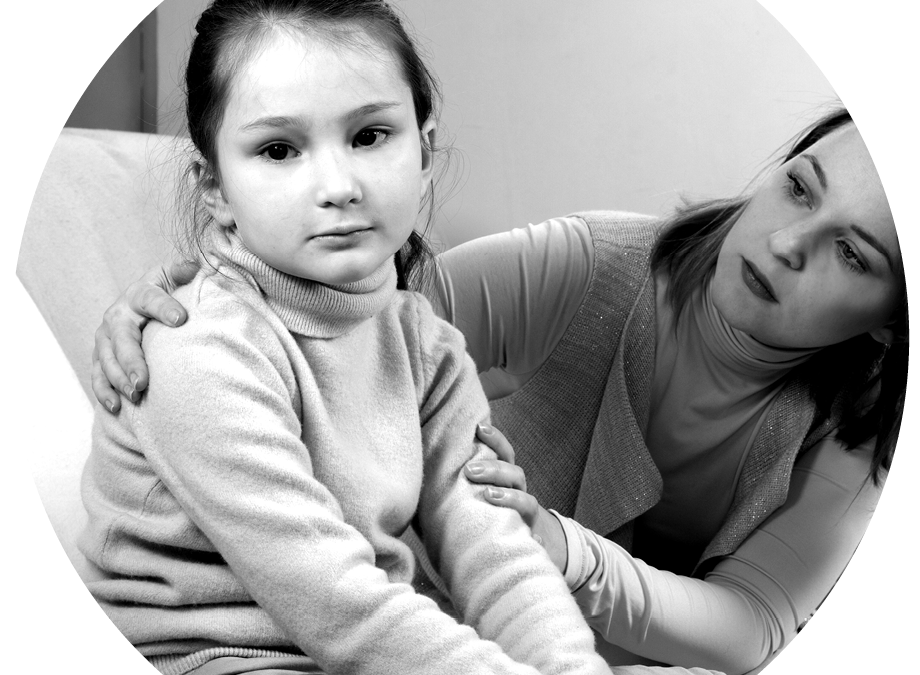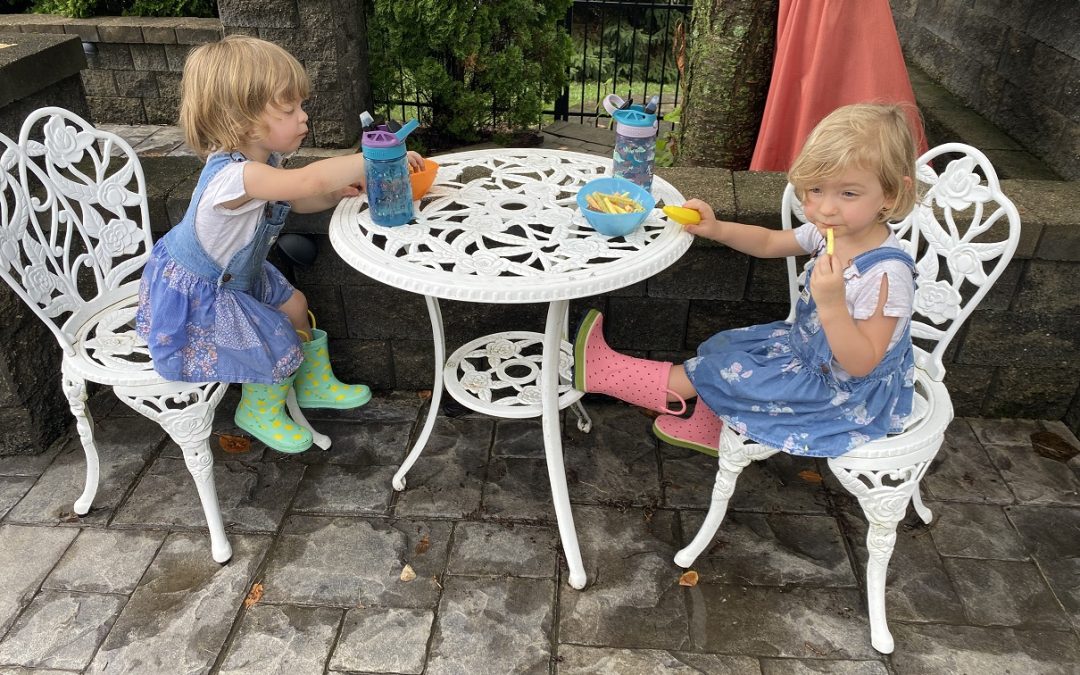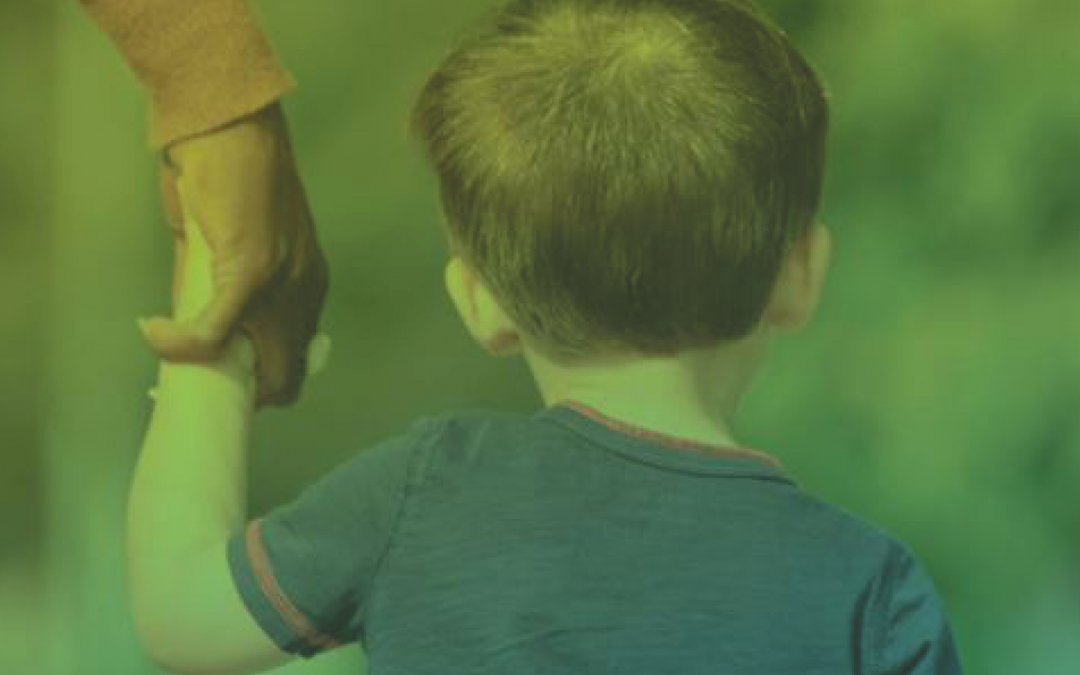
by IABA Team | Nov 9, 2021
ABA therapy is the only evidence-based ASD therapy, but the treatment only works if it is done with care. Not all ABA service providers are the same. How can you tell if your child’s treatment is being conducted correctly?
There are some red flags you can look for if you feel your child is not progressing or benefitting from ABA therapy. The points we are going to talk about won’t cover everything, but they will cover some of the most easily observable ABA therapy red flags.
We have split this article into two parts, as we want to mention why these red flags can be harmful and what you can do to notice them.
Too Many Hours of Therapy
ABA therapy is a billable medical expense. Like most medically billable services, some ABA therapy providers will look to bill for as many hours as possible. Most people don’t require 40+ hours a week of ABA treatment.
Be sure to look at your child’s program and what exactly is being done from a therapy standpoint. Does the program cover everything your child needs? Are the hours reasonable for the needs of your child?
A note that some people do need a lot of therapy, just not everyone. ABA therapy is not supposed to last forever. Your child will eventually be able to live an independent life with honed social skills. Too many hours of therapy is not something that will necessarily help with ABA therapy.
No Observation or Information
One of the most important aspects of ABA therapy is continuing a program at home. If an ABA service provider refuses to share information or allow observation you may want to take a closer look at the program.
Information should always be available on how your child is progressing. Daily records should be available to parents if they want to know what is going on in treatment. If an ABA service provider is unable to share information, it may be time to take a closer look. Quick note: information and records may take a few days to be logged, each clinic is different.
If you are not allowed to visit your child’s ABA clinic to observe treatment and progress you may have a problem on your hands. Dropping by without notice is not recommended, the situations we are talking about are never being able to observe your child’s clinic & program.
Another red flag related to this is a provider only using telehealth methods (phone calls, video chats etc) for BCBA supervision. A BCBA should be directly involved in each child’s program. The only exception to this is ABA providers located in rural areas, as they may be spread very thin and have a limited number of BCBAs.
Extremely Strict Behavior Requirements
ABA therapy works to help people with ASD adapt to neurotypical social norms. Having strict requirements to not allow normal ASD behaviors may lead to issues with many people.
If a therapy program doesn’t allow things like stimming, forces social interaction, or has eye contact requirements, you may want to take a closer look. Forcing behavior changes through programs or (worse) aggressive interactions is a huge issue for any ABA therapy program.
Some behaviors and issues will need to change over time, but forcing the issue through strict programs or adherence to certain behaviors is not the way to go. Be sure to routinely check your child’s program and progress if you think any requirements of the program are too strict.
ABA Therapy from IABA Consultants
If you have questions regarding autism treatment, education, or plans using ABA therapy, we are here for you! Our goal is to make sure no family is turned away due to financial constraints. Our therapy team would love to talk to you. Find the location closest to you and give us a call. We’re here for you.

by Jessie Cooper | Nov 3, 2021
After writing to you about my career and company, last week I detoured into my wishes for my nieces’ futures. I wrote of some of my own personal hardships as a woman in business as well as as a woman leaving domestic abuse. This week I’d like to speak to you about my perspective as a woman who is unwilling to bend, and the cost and benefits.
Women in Society
Over the past year, as I have stood my sacred ground, I have witnessed both the external and internal costs of taking a stand. Externally I have navigated (and continue to navigate) cultural stereotypes. Internally I have fought and am fighting to keep the voices at bay that tell me I am being too loud; that I must become small. I’m walking through fire and slowly learning that I am in fact fireproof.
As women, we are taught from a young age to make ourselves small and to make other people comfortable. That it is somehow our gender’s job to make men comfy. And not only should we make men comfortable but we should excuse ourselves at any point in which a person around us is hurt or offended by anything we say or do.
By societal standards the perfect woman is polite, accommodating, nurturing, and apologetic. She is beautiful, slight in her waist, and ready to smile through the adversities of life. I realize in writing this you may have a gut reaction of, “I don’t expect this of other women, or myself,” but if you ask yourself, “has society taught me this or shown me this,” I assure you the answer is yes. While we do not wear the corset of the 1800’s I guarantee you each woman reading this article has tried a diet at some point in her life. We are still wearing the expectations of our gender on a large scale even if your experience isn’t as dramatic as mine.
Internal & External Perfectionism
In the book, “Brave, Not Perfect,” the author writes about the concept of perfectionism as it affects women. On a much deeper level, she recants how from infancy through college (and even well into marriage) women are taught to be perfect and polite. Soft and docile. Desirable. In her work, she writes about overcoming the need to meet society’s standards and to be brave enough to be herself. It sounds like a small thing but as a woman, I assure you it is not. As soon as you slip off “soft and docile” the crowd in the stand wakes up. I have yet to meet a woman who is boldly herself that has not pushed away these crowds and at times even gone to battle with them. What does this battle entail?
In my experience, the battle is first and always presented internally. You know you have something to say, you know injustice is happening, and you know your soul is trying to break free. Your internal self scans the external world. Unskilled in any first attempt, when a woman boldly speaks her mind, she is almost always met with judgment. Sometimes she is met with hate. The judgment could be from an external person scolding or bullying the woman for being bold or from her own internal interpretation of how the world perceives her.
In both instances, the woman will question her own mind, her own soul, and her own desires. Was standing up, speaking out, and being herself worth the cost? The cost of losing a perceived community, relationship, place to fit in, or being ‘liked?’ In extreme cases, like domestic violence or any type of restriction of safety/liberty, the woman is hurt for speaking up.
Speaking up, unwilling to bend on who she is, the woman will learn quickly who in the world is not ready for her and who accepts her as the being she always was. The thing here is that the woman, unwilling to bend, has to accept herself as she always was. She must learn to ignore the explosions from the outside, call internal questioning a liar, and stand her sacred ground. As the wounds from the outside accumulate the woman must tend to the wounds with care and not accept the wounds as a reflection of her worth. They are battle scars from the fights.
Looking to the Future
As I wrote about my nieces I wrote with hope for a future in which no corsets (physical or mental) exist in the world. Where they are free to boldly be themselves. This goes for my three sons too. To set a future for our children when little boys and little girls are able to be who they are and one where we as parents don’t bend. We cannot accept the status quo or any type of gender stereotyping that restricts the freedom of another person. This freedom can be tiny, such as domestic division of labor, or large, such as equal representation in the legal system. We have a long way to go. But if more of us are willing to stand our ground and realize that by speaking our desires and advocating for our equality there will eventually be more people in the ring fighting for justice than the stands.
I’ve been down here a solid year, fighting for equal representation in domestic law, I’m not tired yet. I am my children’s mama, my niece’s aunt, and I am a woman unwilling to bend.
Xoxo,
Jessie

by Jessie Cooper | Oct 27, 2021
Over the past two weeks, I’ve written a little to you about my business Instructional ABA Consultants and my early career as a BCBA. This week I celebrated my twin nieces Grace and Emma’s third birthday. That’s them in the photo for this blog. They are related, I promise. As I held my now not-so-baby nieces on my lap I also held my desire for the world I want them to live in. This one’s for the girls.
Being There & Not Being There
In the fall of 2018, my sister was 32 weeks pregnant with the girls and I was around four months pregnant with Declan. My sister shared her birth plan with me as she got closer to the delivery. A piece of that plan was not wanting family there until after the girls were born.
On a Friday morning, Kristen’s plan changed when she found out she had preeclampsia and HELLP syndrome meaning the girls had to be delivered immediately. At the time I was overcome with fear for my sister and what to do with Henry. My ex-husband was less than kind when I spent time with family or when I was not the one caring for our son. I called my dear friend and babysitter in tears. She immediately jumped in to help with Henry. I called my sister, let her know that I was on my way to Ohio, and left.
This is a day of joy and despair that I will always remember. My sister and baby nieces were in crisis, I was pregnant, and felt fear for my family. Isolation is a common tactic of domestic violence and my ex-husband used this birth just the same. Nothing was below him. As I drove to Ohio I was ordered to turn the car around and when my nieces were born I was told I didn’t love my own son if I didn’t come home. I cried in relief of their birth, for my sister’s wellbeing, and for the cruelty of my ex-husband. I stood my ground, of course, and stayed with my sister and the girls.
My Sister’s Beautiful Little Girls
I remember their tiny little fingers and toes as my brother-in-law took me to the NICU. Emma’s soft, fuzzy blonde hair and Grace’s dark brown are still clear in my memory. I kept thinking for 32 weeks these babies have so much hair! Linked up to tubes and swaddled into boxes, my baby nieces were safe and still developing as though they were in the womb.
I will never forget braiding my sister’s hair and wheeling her to see her daughters. To see her reach into each incubator and brush their hands, “I’m mommy, I’m mommy.” Healing from her emergency c-section my sister poured love into those baby girls (their papa too) as they welcomed their daughters into the world. Me? I was an aunt. The very thing I wanted, even before I wanted to be a mommy of my own.
Leaving Domestic Violence Behind
Over the last three years so much has happened and changed. My baby nieces came home from the NICU after four weeks and just in time for Thanksgiving. Wonderful, beautiful Declan was born. Dametrius became my son. And I left domestic violence.
I have spent an incredible amount of time in shock over how I have been treated simply because I am a woman over the past year. Raised in a household where gender did not define our worth, I have been overcome with disbelief time and time again as I have been met with discrimination. Discrimination that I, until I faced, did not know still occurred in this day and age let alone in my own family.
When I came out to my father’s family about my experience with domestic violence last fall, his family’s radical views on women came out of the woodwork. A cousin I held dearly turned on me within a day of me standing up to my ex-husband reciting the 10 Commandments to my dad. An uncle told my dad, his own brother, that if I submitted to my alpha husband God would restore my marriage. Another uncle sent me a weekend retreat I could attend to learn my place in my marriage. Another cousin even went as far as to state, “he didn’t hit her, it’s not abuse, what’s next she’s going to say he raped her? Husbands cannot rape their wives.”
I did not and do not have words for the belief system that was exposed. As I let go of a family I thought I had, but never really did, I wailed to the skies, “What?! I am losing my family because I am a woman with a voice? Because I refuse to be abused?” I cannot tell you the pain and relief that came due to the separation from this side of my family. As I chose to set the boundary of, “I will not be in relationship with those who support my abuser or use religion to oppress women,” I set a precedent for my nieces. I cannot imagine a world, Goddess forbid, that Grace or Emma find themselves being mistreated and told how to act, or else, because they are women.
Overcoming Discrimination
Over the course of the last year not only have I been discriminated against by my family but questioned time and time again in the court system. To this day my legal team is fighting against that stereotype that because I am a successful business owner I must be a bitch. For a year now, when I have brought forth true concerns of safety for myself and my sons we have to fight this narrative. Time and time again I have been told I cannot fly my feminist flag in court.
What if it’s not a feminist flag? What if I am a human being who is just asking to be considered equally within the court system? What if I am not trying to control but instead a frightened, concerned mother? What if I am not a bitch but instead an excellent, caring leader? And what if I am just a person being brave and trying to call for justice, as well as create hope, through my talents in business?
I do not want this for myself yet more than that I do not want to ever see my nieces treated as less because they are women. I want a world in which when my nieces speak, they are heard and believed. A world where when they wish, dream, desire, lust, and wonder they are free to pursue what lights the fires in their souls. A world where when injustice comes it’s met with justice, not discrimination. I never want my nieces to even consider being a woman a limitation. It is not. We have a long way to go in building a world where the world does not default to limiting them. Unfortunately, it took a divorce for me to see exactly what is still happening in our world.
Grace & Emma, be thirsty my loves. Be brave. Be fearless. Your Aunt Jessie? I’m trying, my darlings, to create a small but carefully laid path of hope and justice in our family and world so you may walk a little easier than me.
Xoxo,
“Aunt” Jessie

by IABA Team | Oct 19, 2021
One of the challenges of modern life is the lure of having it all. We believe that if we can just manage our time, our child with autism can have the best experiences at school, at ABA therapy, with friends, and at home with family. When we’re spread too thin, though, we don’t benefit fully from anything. But when we learn to prioritize according to our values, we may not feel regret about making difficult choices and doing less.
Letting our values guide our choices is an unfamiliar concept for most of us — and it requires a little self-exploration to determine our priorities. But the rewards can be huge.
How COVID-19 Affected Priorities
Despite COVID’s continued impact, families are beginning to have more options for kids with autism. In-person school might be slotted in next to ABA therapy, and the combination can radically alter evening routines as everyone in the family also needs to take time to prepare to do it all again the following day. Here, families may struggle to decide which treatments to pursue for their child.
A family may see major benefits with ABA therapy but also recognize that COVID-related disruptions were very hard. Many parents think their child will benefit from going back to school, yet they don’t want to lose ABA therapy and they also want to have family time.
In a situation like this would a family benefit from having some of everything? Or would fewer activities that allow for richer experiences be better? In a lot of cases, efforts are not necessarily concentrated enough to have positive outcomes in any of the choices.
A tough decision is easier when a family can figure out what they really value. Evaluating what parts of in-school therapy, clinical therapy, and at-home therapy can help families decide what is most important for their child.
Developing Priorities for Children with ASD
As with everything else in life, values are not necessarily constant. This means we can adjust behaviors and choices to align with shifting values.
Determining our values can help steer us toward more fulfilling outcomes, even on a day-to-day basis. If your child is working toward learning to tie their shoes independently, for instance, repetition will help them achieve this more quickly. The downside to a lot of repetition is that you aren’t able to get other values-related tasks done. Putting the things you value most at the front of your list can help tackle important issues first.
The beauty of a values-based approach to lifestyle choices is that each parent’s values are personal and specific to them. There’s no comparison or measurement of personal values, so no guilt should be involved.
For example; if a parent can better approach each day when there’s no lingering laundry to fold, they’re not prioritizing laundry over children. But they are placing value on having an uncluttered mind so they can be more present in the moments that really matter.
ABA Therapy from IABA Consultants
If you have questions regarding autism treatment, education, or plans using ABA therapy, we are here for you! Our goal is to make sure no family is turned away due to financial constraints. Our therapy team would love to talk to you. Find the location closest to you and give us a call. We’re here for you.
Originally Posted as Values Can Help Clarify Choices With a Child With Autism, Chicago Parent, September 17, 2021

by Jessie Cooper | Oct 14, 2021
Over the course of the past year, I’ve been writing to you about standing in your own worth, your truth. I’ve taken you down many paths in the forest of life and shared both challenging and joyful paths that I have walked down. Through writing to you about personal experiences I have healed and still seek to heal further. Life is full of encounters and experiences that can deliver this; for us to hold each moment of being human in our hearts to live a life of freedom.
What I haven’t written to you about in detail is my career and the work that started my journey. This past week I was recertified by Board Certification as a Behavior Analyst for a fourth time marking a decade as a BCBA. This summer I will celebrate a decade as a BCBA entrepreneur as the owner of Instructional ABA Consultants. It was emotions and injustice that brought me to my career and success. This week I’d like to share my professional journey.
Starting a Career Helping with ASD
My work in the field of autism began fifteen years ago when I was obtaining my bachelor’s degree at the Ohio State University (OSU) in human development focusing on early childhood. I was curious about how environments shaped the developmental outcomes of children. During my time at OSU, I worked in their preschool program and was a home-based therapist for two children with autism using applied behavior analysis (ABA).
This was back in the early 2000s and in both cases, the children were accessing services but their ASD symptoms were not being treated. The ABA program I was working under was state-funded and both children I worked with had high levels of physical aggression. Neither child had a treatment plan that actually alleviated the aggression. I was passionate about the kids and knew from my undergraduate work that environments mattered. In the fall of 2009, I began my master’s degree in Applied Behavior Analysis at The Chicago School of Professional Psychology.
My choice to begin a master’s degree stemmed from a desire to understand why aggression, as well as other aberrant behaviors, occurred in children. I also wanted to understand how applied behavior analysis treated autism symptoms in early childhood. During my master’s degree, I worked as an early childhood line therapist and joined the Illinois Crisis Prevention Network (ICPN) as my internship. I had to work during my degrees to pay my bills and at the time was focused on nothing outside of my career. I was thirsty to learn so I could create change for children.
Working at the ICPN
As I began working on the ICPN I was introduced to adults with mental illness and developmental disabilities. I quickly fell in love with the population and saw how lack of access to quality treatment affected their lives. In spending the first five years of my career focused on children I had never really thought about where they would go when they grew up. I had never thought about the adults with disabilities who had never gained access to care as children themselves. Most of the adults I served at the time had been raised in state-run institutions. Through my work with the adults, my eyes were opened to not only what happens immediately with small children with autism who do not have access to care, but also what can happen in adulthood.
During my time at the ICPN, I worked to gain my associate certification first and followed it up with BCBA board certification. I was given the opportunity of a caseload of clients (from children to geriatrics) who needed immediate crisis support; first under supervision, then as my own caseload. During this time I was wildly in love with my job but fiercely angry at the lack of care my clients received.
As a young woman, I cannot tell you the number of parents’ hands I held as we talked about their child’s (young or adult) experience that led to a crisis. The stories they told me both broke my heart and filled me with a fire to change their experience. Time after time the constant theme that led to a crisis was lack of intervention due to either a lack of funding or an unethical & uncaring therapy team. I worked with each client and family to stabilize their loved ones from crisis to community-functioning. Without access to outside care of the crisis team, success was usually not sustainable.
Changing the Game
In 2012 I decided to change that. I had met my own personal mission to understand aberrant behaviors and the impact of the environment on childhood development. Now, I know through science that the environment is the key predictor of outcome. I also knew that applied behavior analysis provided a scientific approach to at-risk symptoms of autism as well as behaviors.
With my own hands, through applied behavior analysis, I was able to change the outcome of lives for the better. I wanted to open a private practice that used these skills to close the gap in services based on funding sources. I also wanted to challenge my field ethically to create a place where all of our clients received quality care. A decade ago this was not the case. Even today ABA has mountains to climb regarding regulating quality care for all families.
It’s been a decade since I sat for my boards and I still have a fire burning in me fueled by what our science can do to help serve clients who otherwise would not have access to therapy. I went from just me to five locations, across three states, with a team of professionals who have the same passion. Each day I wake up knowing that we (not just me) are creating lasting change. Learning to run a company is for a different blog but as a BCBA I know I have a decade to be proud of.
To the next decade of service. Wherever we may go.
Xoxo,
Jessie





